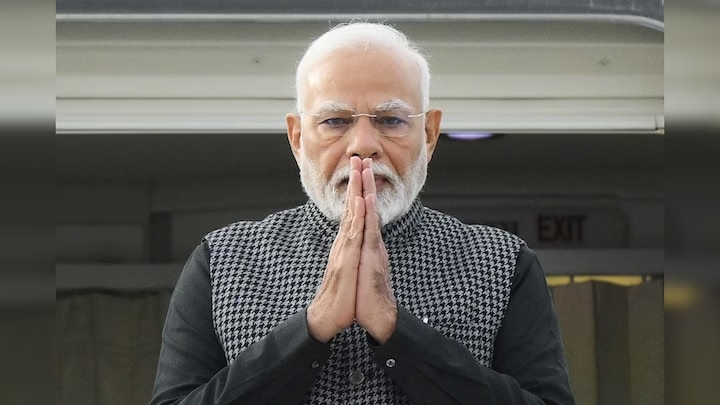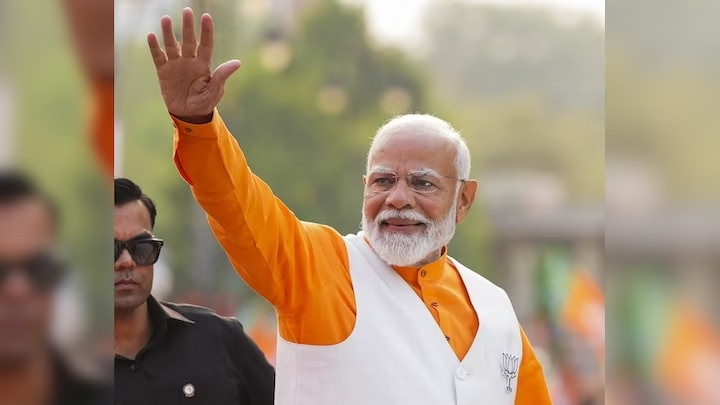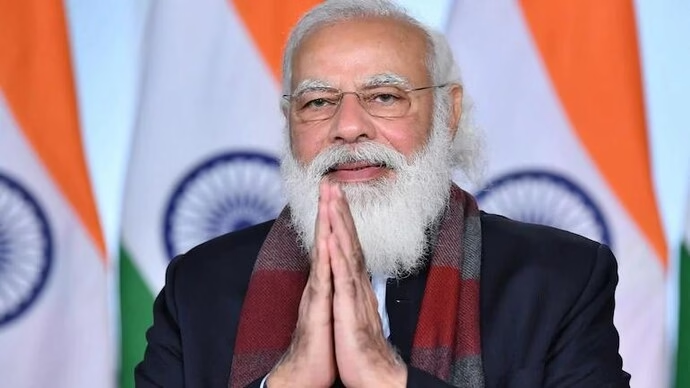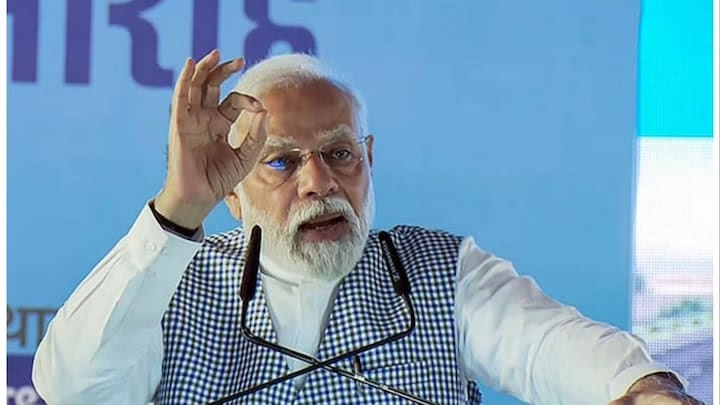Narendra Modi’s Leadership and Criticisms
Prime Minister Narendra Modi is one of the most discussed figures in Indian politics. His life has been marked by significant achievements, controversies, and a series of decisionstion and criticism. Since assuming office in 2014, Modi has implemented numerous reforms and policies, but his leadership has also been embroiled in various controversies. While his supporters view him as a transformative leader, his critics highlight numerous allegations that have shaped his political journey. This article delves into the controversial aspects of Narendra Modi’s life, focusing on the key allegations and criticisms that have shaped his tenure pm Modi

1. The Gujarat Riots (2002)
One of the most significant and controversial events in Modi’s life is the Gujarat riots of 2002. At that time, Modi was the Chief Minister of Gujarat. The riots were triggered by the burning of a train in Godhra, which resulted in the deaths of 59 people, mostly Hindu pilgrims. The violence that followed led to the deaths of hundreds of people, mostly from the Muslim community pm Modi
Modi’s role in the riots has been widely debated. He was accused of failing to stop the violence and even of allegedly encouraging it. There were claims that he allowed or indirectly supported the rioters, leading to widespread communal violence. While investigations, including those by the Supreme Court-appointed Special Investigation Team (SIT), cleared Modi of direct involvement, the allegations continue to haunt his political career. Many human rights activists and opposition leaders still claim that Modi’s actions or inaction contributed to the scale of the violence pm Modi
2. Fake Encounters (Sohrabuddin Case)
Another serious allegation against Modi revolves around the fake encounter killings in Gujarat during his tenure as Chief Minister. Several police officers were accused of carrying out extrajudicial killings, particularly the high-profile case of Sohrabuddin Sheikh. Sheikh, who was allegedly a gangster, was killed in a staged encounter by the Gujarat Police in 2005 pm Modi
This incident raised suspicions about the role of the state government, and many accused Modi’s administration of complicity or willful ignorance. Several police officers were charged with murder, and the case sparked a wider debate about the use of fake encounters as a tool to combat crime and terrorism. While Modi was never directly implicated in the case, the incident remains one of the darkest chapters of his political career.
3. Demonetization (2016)
On November 8, 2016, PM Modi announced the demonetization of ₹500 and ₹1,000 currency notes, a move aimed at curbing black money, counterfeit currency, and corruption. While the government argued that the move was necessary to tackle corruption and promote a cashless economy, it resulted in widespread chaos.

The sudden decision led to long queues outside banks and ATMs, as people rushed to exchange their notes. Small businesses, farmers, and the informal sector were severely impacted, and many struggled to adjust to the abrupt policy change. Critics of the policy argue that it was poorly planned and executed, with little regard for the consequences faced by the common people. Despite the government’s claim that demonetization achieved its goals, many reports later revealed that a large portion of the demonetized currency was returned to the banking system, calling into question the effectiveness of the move.
4. The Rafale Jet Deal (2016)
The Rafale fighter jet deal, signed between India and France in 2016, has been another significant point of contention in Modi’s tenure. The deal, valued at approximately ₹59,000 crores, involved the purchase of 36 Rafale jets from France. Opposition parties, particularly the Congress, have accused the Modi government of corruption and favoritism in the deal.
They claim that the government paid an inflated price for the jets and that a private company, Reliance Defence, was given undue benefits as part of the offset contract. Modi has strongly denied these allegations, and his government has defended the deal, stating that the Rafale jets are essential for strengthening India’s defense capabilities. However, the controversy over the deal continues to be a significant source of criticism for Modi’s government.
5. Religious Polarization and Secularism
Modi’s tenure has also been marked by allegations of increasing religious polarization, particularly between Hindus and Muslims. Under Modi’s leadership, several controversial policies have been introduced, such as the Citizenship Amendment Act (CAA) and the proposed National Register of Citizens (NRC), which have been criticized for discriminating against Muslims

The CAA, which provides a pathway to citizenship for non-Muslim refugees from neighboring countries, has been seen by many as an attempt to marginalize India’s Muslim population. Opponents argue that such policies are against the principles of secularism enshrined in the Indian Constitution and promote Hindu nationalism. While Modi has defended these policies as necessary for national security and social harmony, they have sparked widespread protests and opposition.
6. Economic Challenges and Unemployment
Despite several economic reforms, Modi’s government has faced criticism for the lack of job creation and the economic hardships faced by many sections of society. During Modi’s tenure, unemployment rates have been high, especially among the youth.
The government’s economic policies, including the Goods and Services Tax (GST) and demonetization, have been blamed for stifling job growth and causing disruptions in the economy. Small businesses and farmers have struggled to cope with the changes, leading to economic distress in rural areas. Additionally, the growing wealth inequality and rising inflation have contributed to widespread dissatisfaction with Modi’s economic policies.
7. Handling the COVID-19 Pandemic
The COVID-19 pandemic posed one of the greatest challenges for global leaders, including PM Modi. His government’s response to the pandemic has been widely criticized, especially in the early months of the crisis pm Modi
pm Modi the decision to impose a nationwide lockdown in March 2020 was abrupt and left millions of migrant workers stranded across the country, with no jobs, money, or means of transportation to return to their villages. The lockdown led to widespread hardship, and the government’s initial response to the crisis was seen as inadequate. Critics also pointed out the lack of preparedness in terms of testing and healthcare infrastructure. Although the government later ramped up efforts, including a large vaccination campaign, the initial handling of the crisis has been a source of significant criticism. pm Modi
8. Pressure on NGOs and Social Activists
Modi’s government has also been accused of targeting non-governmental organizations (NGOs) and activists who are critical of the government. Several organizations working on issues related to human rights, environmental protection, and minority rights have faced restrictions, including the suspension of their licenses to receive foreign funding under the Foreign Contribution Regulation Act (FCRA).
The most prominent example of this was the crackdown on Greenpeace India, an environmental NGO that opposed Modi’s policies on coal mining and climate change. Critics argue that these actions reflect the government’s attempts to suppress dissent and limit the freedom of civil society organizations pm Modi
9. Media Control and Suppression of Free Speech
Under Modi’s leadership, the media in India has been accused of being increasingly controlled by the government. Critics claim that the Modi administration has used various tactics to suppress free speech, including pressure on journalists and media outlets critical of the government pm Modi
Several independent media outlets and journalists have faced legal action, harassment, or threats for reporting on issues that the government considers sensitive. Some believe that the government has used its influence over media companies to shape public perception and suppress critical voices. This has raised concerns about the freedom of the press and the state of democracy in India under Modi’s rule.
10. Political Oppression and Targeting of Opponents
Lastly, Modi’s government has been accused of using state machinery to target political opponents. Opposition parties, particularly the Congress, have claimed that the government has used agencies like the Enforcement Directorate (ED), the Central Bureau of Investigation (CBI), and the Income Tax Department to harass political rivals pm Modi
Many opposition leaders have been subjected to investigations, arrests, and political persecution, which critics argue is an attempt to stifle opposition and strengthen the ruling party’s grip on power pm Modi The growing sense of political oppression has raised concerns about the state of democracy in India under Modi’s leadership pm Modi

Conclusion
Narendra Modi’s tenure as Prime Minister of India has been marked by numerous controversies, some of which have had significant impacts on his political career. While his supporters view him as a transformative leader who has modernized India and strengthened its global position, his critics argue that his policies and actions have undermined democratic institutions and caused harm to the social fabric of the country pm Modi
The allegations and criticisms against Modi have become an integral part of his political legacy. Whether one views him as a visionary leader or an authoritarian figure largely depends on one’s political perspective. However, there is no denying that the controversies surrounding his leadership will continue to shape the discourse around his time in power for years to come pm modi
You may also visit here – The Cases against Narendra Modi – Government
Recent Posts
- Ustad Zakir Hussain: A Legendary Maestro of the Tabla (1951–2024)
- Virat Kohli’s Struggles in Australia: A Lesson in Consistency and Challenges 2024
- 7 Hilarious Alexa Responses That Turned a Little Girl’s Gaali Request Into Pure Comedy Gold!
- Pooja Hegde’s 3 Power-Packed Movies Set to Revive Her Career in 2025!
- Kane Williamson: A Cricket Legend from New Zealand: A Cricket Legend from New Zealand 2024

3 thoughts on “The Controversial Leadership of PM Modi: Allegations, Criticisms, and Impact 2024”